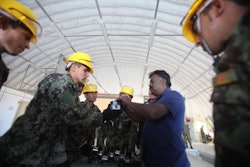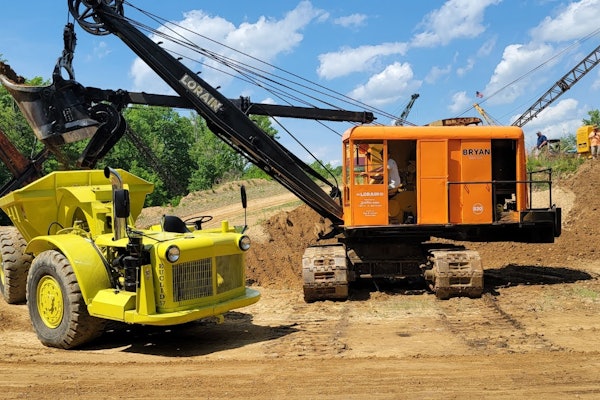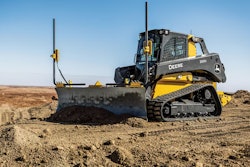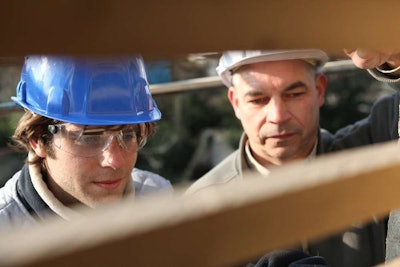
Our industry needs young men. Young men need jobs.
You would think these problems would solve each other, but there’s a disconnect. You could blame society, schools, Obama, the Bilderburger Group. Good luck getting any of them to return your phone calls.
My solution is much simpler.
 Don’t get stuck working for this guy. That wouldn’t be great.
Don’t get stuck working for this guy. That wouldn’t be great.If you know a young man who didn’t go to college, dropped out of college, hated college, or who is out of college and can’t get anything better than some dead-end, franchise job, email, tweet, Facebook or heck, even print these seven rules, just share them with him and suggest he get a job in construction.
And if you happen to be a young man considering a career in construction, you’ve come to the right place. After all, we’re talking about an industry that is expected to hire 1.6 million people in the next eight years.
If you or the young man you know is 17 to 35, in reasonably good shape and works hard he could make decent money and maybe even a make a career or start their own business.
Best of all, he can work outside, spit, chew, cuss and grow experimental facial hair all he wants. That’s got to be better than working for Bill Lumbergh from the movie Office Space, eh?
But I digress. Here are the seven rules for the first week:
1. Show up on time, every time

This is the most important rule. Late is a fatal flaw in construction.
Carjack your college diversity counselor if you must, but get to the jobsite before they crank up the first machine or strap on the tool belts, even if you’re just going to hold a shovel or stack lumber all day.
Better yet, show up 15 minutes early. The dinosaurs like to use this time to smoke, joke, scratch and settle bets from last night’s game
2. Leave your phone in your car…

…or else somebody’s going to slap it out of your hand. You can check it at breaks and or lunch. Construction jobsites are dangerous. You don’t need distractions. And nobody’s paying you to update your Facebook status.
3. Dress for success
 Not only do these look awesome they actually allow you to get hard work done.
Not only do these look awesome they actually allow you to get hard work done.Sturdy boots, gloves, jeans, hat if you’re in the sun, and other seasonally appropriate wear. Hardhat and reflective vests if that’s what everybody else is wearing.
A tip from Texas: long sleeve, well worn, oversized cotton shirts will keep the sun off you in summer. Tools in tank tops fry.
4. Bring your own lunch, sunscreen, plenty of water
 These won’t cut it on the jobsite.
These won’t cut it on the jobsite.Sometimes lunch, sunscreen and water are provided, but until you know, don’t be a mooch. Knapsacks are fine. Keep in mind you’re going to burn a lot of calories. A salad isn’t going to get you through the day.
5. Be humble and truthful
The guy that hired you may not be the guy who supervises you. But don’t overstate your skills to either of them. Most contractors and supers have a specific way they like to have things done, so it’s better to ask and be instructed than to foul something up and get chewed out.
6. Pay attention

A decade or more of passive, gender-neutralizing, politically correct public education may have nearly turned you into a zombie.
But the moment work starts on a construction site you’ll need the eyes, ears and reflexes of a pro quarterback.
You might be impaled on rebar, fall off a roof, get extruded into the dirt by 12,000 pound wheel loader, or set afire by a welding torch. So many ways to be maimed or killed!
7. Practice mindfulness
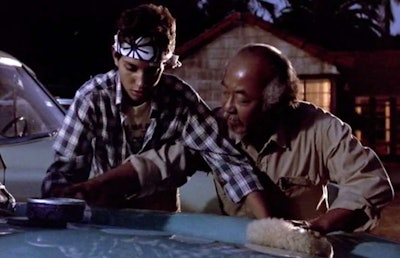
I know this sounds like woo-woo. Wax-on, wax-off. But hear me out. Much of construction is repetitive. You do the same thing, same tool, same motion over and over again, sometimes for hours, sometimes for days. But you can’t lose your focus. If you find your attention flagging just remember that Larry Bird shot hundreds of practice shots every day of his career, in season or off, vacation or not, even for a period of time when he was on crutches.
Tiger Woods was the last one to leave many a driving range at night before he got famous. The Beatles played their songs tens of thousands of times in the strip clubs of Hamburg before they clicked as a band. Works in sports. Works in music. Works in construction. You get better one bucket, one nail, one load at a time.
Assuming you survive your first week and collect that precious paycheck, you may find yourself changed a little bit. You’ll have that ruddy glow of a real outdoors guy. You’ll feel a little stronger, stand a little taller, sleep a little better. And you’ll probably have seen the beginning of something you’re helping to build, something that may stand for decades–a road, a house, a school or a hospital–something you can take pride in for years to come.
One would hope, that encourages you to come back.
In Part II, I’ll talk about the skills you need to survive the first month in a construction job. Part III will deal with the first year and what you should think about if you would like to make construction a career.
And don’t forget, at the end of Office Space, the main character, Peter Gibbons (played by Ron Livingston) wound up happy and working in construction.
If you’re a contractor reading this or a seasoned construction vet, what advice would you give? Email me at: [email protected].





